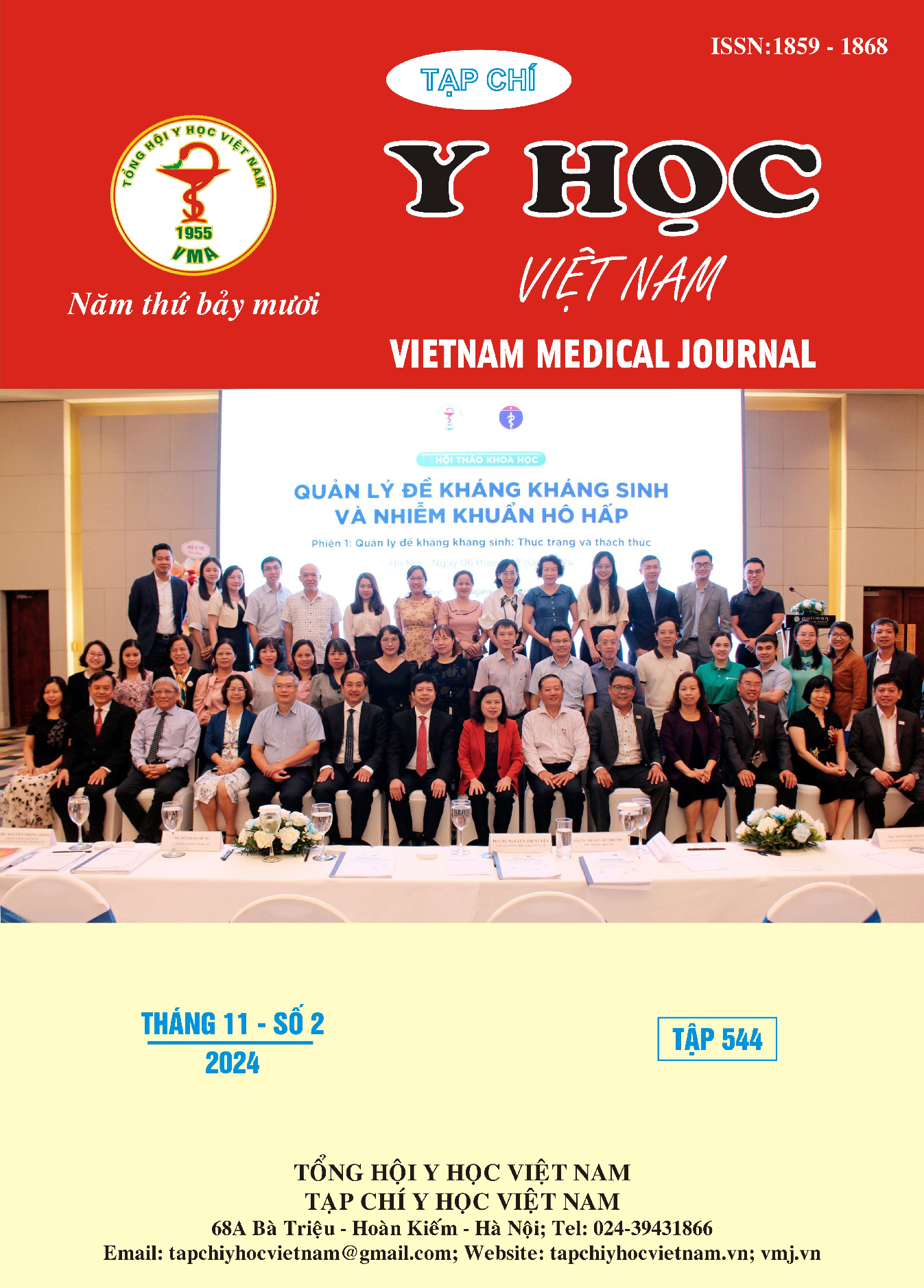HAND-FOOT SYNDROME AND SOME ADVERSE EFFECTS OF CAPECITABINE IN CANCER PATIENTS AT HANOI MEDICAL UNIVERSITY HOSPITAL
Main Article Content
Abstract
Objective: This study aims to assess the incidence and characteristics of hand-foot syndrome and other adverse effects of capecitabine in cancer patients at Hanoi Medical University Hospital, as well as to identify factors influencing these effects. Methods: A cross-sectional study was conducted from October 2017 to September 2019 in the hospital’s Oncology Department. We monitored 49 patients on capecitabine monotherapy, recording adverse effects and analyzing physiological, pathological, and laboratory data. Results: Hand-foot syndrome occurred in 51.02% of patients. Other adverse effects included vomiting (10.20%), nausea (12.24%), gastritis (2.04%), diarrhea (12.24%), and gastroesophageal reflux (6.12%). Severity of hand-foot syndrome was Grade 3 in 8.16% of patients, Grade 2 in 16.33%, and Grade 1 in 26.53%. Incidence was significantly higher in patients over 60 years (p=0.032), but severity was not age-dependent (p=0.184). Drug dosage and laboratory indices showed no significant correlation with adverse effects. Conclusion: Our study reveals a higher incidence of hand-foot syndrome and lower gastrointestinal adverse effects compared to international studies. Age influences the incidence of hand-foot syndrome, while drug dosage and laboratory indices do not significantly affect adverse effects. Further pharmacogenomic research is needed to improve management strategies.
Article Details
Keywords
capecitabine, hand-foot syndrom, adverse effects, cancer.
References
2. B. A. Morrison GB, Dela Rosa T, Diasio RB, Takimoto CH. Dihydropyrimidine dehydrogenase deficiency: a pharmacogenetic defect causing severe adverse reactions to 5-fluorouracil-based chemotherapy, Oncol Nurs Forum, 2007, 24, 83–88.
3. C.-C. Law, Y.-T. Fu, K.-K. Chau et al. Toxicity profile and efficacy of oral capecitabine as adjuvant chemotherapy for Chinese patients with stage III colon cancer. Diseases of the Colon & Rectum, 2007, 50 (12), 2180-2187.
4. C. M. Walko và C. Lindley. Capecitabine: a review, Clinical therapeutics, 2005. 27 (1), 23-44.
5. M. W. Saif, N. A. Katirtzoglou và K. N. Syrigos. Capecitabine: an overview of the side effects and their management. Anti-cancer drugs, 2008, 19 (5), 447-464.
6. G. Milano, M. C. Etienne‐Grimaldi, M. Mari et al. Candidate mechanisms for capecitabine‐related hand–foot syndrome. British journal of clinical pharmacology, 2008, 66 (1), 88-95.
7. H.-S. Son, W. Y. Lee, W.-S. Lee et al. Compliance and effective management of the hand-foot syndrome in colon cancer patients receiving capecitabine as adjuvant chemotherapy. Yonsei medical journal, 2009, 50 (6), 796-802.
8. J. Baan, M. Bos, S. U. Gonesh-Kisoensingh et al. Capecitabine-induced toxicity: an outcome study into drug safety. J Integr Oncol, 2014, 3 (113), 2.


